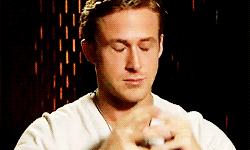I've been so busy writing articles for The Almost Doctor's Channel (as you can see from my profile here) that I haven't had time to update my own blog! Since it's Valentine's Day, I wanted to send some love out to all of my wonderful readers who still keep up with me and let you all know that I'm determined to do better!
I'm not a huge fan of the consumer approach to today but I do like the idea of using this "holiday" to tell the important people in your life that you love and appreciate them and that's what I want to do for you guys. When I started this blog I had no idea that it would be received with such interest and warmth by so many. The comments that I've received and the feedback I've been given has been amazing and has helped me through some difficult parts of the application process.
I can only hope that I've been able to do the same for all of you. Have a beautiful day.
Q & A Session - Post-Bac Studies, Nontraditional Routes, Taking a Year Off
Monday, February 3, 2014
I was recently contacted by an undergrad who is interested in doing the same Harvard post-bac that I completed and after back and forthing over email a few times I realized that a lot of his questions were probably quite common and maybe it would be helpful to put them here along with my answers in case anyone else was interested in hearing about my experience in more detail than I usually offer up in a typical post. It's difficult sometimes to get insider information on courses or programs that you're interested in. Most forums I've encountered either don't have anything that's actually helpful or they're just extremely negative and discouraging because the kind of people that post on them are disgruntled or unhappy with their experience and their viewpoint is hugely biased. For my part, I tried to be extremely objective when I wrote these answers out so I hope you all find them useful! And of course, if anyone has further questions please don't hesitate to contact with me through this blog or on Twitter or via carrier pigeon (whichever way works best for you). This is an incredibly long post so I added some pictures/gifs to break it up and (hopefully) entertain!
Q: I am currently a senior at a
liberal arts college in MA. I had initial intentions of going to medical school
before starting my time in college, but that quickly changed after my first
year was complete. It wasn't until my junior year that I began considering
other alternatives such as a Physician Assistant program before finally coming
to the realization that medical school was the ultimate goal. Unfortunately, I
passed up a good amount of time to take the medical school requisites and have
only taken Gen Chem 1/2. I am currently in the process of applying for research
assistant positions in the Boston area as it is close to home and hopefully at
an academic teaching hospital to get my tuition reimbursed to a certain extent.
I have been applying to a lot of Partners locations as well as BU School of
Medicine. In the event I get offered a position through a Partners affiliate, I
would plan on taking classes at Harvard Extension School during the evenings.
This is where I thought your input could be useful.
How did you come across this program
and what other programs in the area did you look in to? I think this program in
particular is a great option for me because it offers the opportunity to take
classes when it works with my schedule as opposed to completing all the courses
within one academic year. In your case, what courses did you take and when?
Working full time, did you find taking two courses in one semester to be
overwhelming at all? Along these lines, do you think medical schools look down
on this approach to taking a reduced academic load while working as opposed to
taking a full course load without working? Also, how were the professors in the
program? My classes during my undergraduate tenure have been very, very small
(~25 students/class) in comparison to some of the class sizes offered at
Harvard. How do the students typically do in the classes who aspire to go to
medical school and what types of grades do you need for sponsorship through the
program?
A: I had a lot of really great
people encourage and support me when I was thinking about doing a post-bac so
it's nice to do the same for someone else. Your story is really not that
unusual. There are a huge number of current medical students who majored in
something completely unrelated to the science field and only later decided they
really wanted to pursue a career in medicine. I think your plan to get a
research assistant job is fantastic but I would also make sure to get some
clinical experience. Schools who interview students in your situation in
particular want to make sure that you're really dedicated and that you haven't
just changed your mind on a whim - they want proof that you have experience in
a clinical setting and that you still want to (or are even more determined to)
pursue medicine.
I would also definitely recommend
getting a job that will help pay for classes. I didn't end up doing that until
now (I work at Northwestern and am taking an Anatomy course) but I had friends
who did at Brigham & Women’s and it worked out very well for them.
I heard about the Harvard post-bac
through a coworker whose son had done it and had actually met his wife through
one of his classes. I did a bit of research about the program but honestly
didn't really consider going anywhere other than Harvard because even though
it's the extension school it's a great name to have on your application. I
didn't end up completing my "certificate" because I applied before I
had finished the number of courses required for sponsorship but I did take quite
a few classes there. I had pretty low/average undergraduate grades (I was a COM
major and they didn't really matter when I was planning on being a journalist!)
but I still was accepted into the official Health Careers Program so unless you
literally failed half your undergrad classes you should get in. It doesn’t
really matter if you are officially in the program or not anyway unless you
really want to get sponsored (For those of you who don’t know, Harvard will “sponsor”
your application for a fee if you get above a certain GPA in their post-bac
which basically just means they will write you a committee recommendation
letter that’s all official and comes from the University and looks good on your
application). If you aren’t in the program you can still take as many courses
as you’d like as an at large student, which a lot of my friends did.
The classes are VERY large and
lecture-style but the labs are smaller and I actually had a great experience in
a few of them (depends on the TF's. If you get a chance to choose I have some
recommendations!). I struggled in the courses not because of the material
(except for Physics) but mainly because I didn't have enough time to dedicate
to straight studying. I was working full time and taking two or three classes
and it just wasn't working out well for me. Ultimately I ended up taking one
class and having a full-time job and that was much easier. I think if you are
already used to studying for difficult science classes you could juggle two
classes and work but I didn't give myself the time to ease into it and that was
definitely reflected in my earlier grades.
Q: In regards to the classes, how
easy was it to seek out help from either the professor or the TA given the
large class sizes? I'm so used to being able to stop into office hours whenever
I'd like with little to no line to get my questions answered. Also, in terms of
recommendations for the med school application, or maybe it's just my
undergrad's requirement, but I believe they require a letter from a from a
science professor. Is there any chance at all that at a place like this, you
have any shot of getting a decent letter of recommendation from a professor or
is there no interaction? Finally, do you know if admissions committees for
medical schools take into account whether you took all the courses in one
academic year, which may prove you're ready to handle the medical school
curriculum, or can you take the classes piece meal without being penalized?
A: The classes really varied in
terms of getting help. I had a very hard time in Physics and the first semester
felt like there was no one who could do a good job explaining things to me. The
TA's (called Teaching Fellows, TFs at Harv) were very, very smart but I felt
like their ability to actually teach was quite limited which was frustrating
for me because Physics is not an intuitive science in my case. I had friends
who found outside tutors they were very happy with but I couldn’t really afford
that so I ended up just getting help from whoever I could at the moment. On the
other hand, there were some classes where the professor was very available,
incredibly helpful and held regular office hours (Biochemistry was a
particularly good example and I ended up getting a recommendation from the
professor who taught that class). I also felt like the Gen Chem and Organic
Chemistry courses were very well handled and there was always someone there to
ask for help if needed. Definitely take advantage of office hours and I'm sure
it won't be difficult to have several options for recommendations.
In response to your question
regarding medical school admissions committees, it seems like you're really
concerned that your nontraditional approach is going to be looked down on in
some way. Please don't think that. Everyone that I have spoken to, both of the
schools I have interviewed at so far and all of the friends I have who are
currently in medical school have said many times that it doesn't matter what
path you take to get to medical school, what is important is that you are able
to show them your passion for medicine and your ability to succeed in a busy
and stressful environment. For you, this may mean trying to get a publication
while you are taking two classes. Being able to juggle work AND school is an
incredible accomplishment and is absolutely not looked down upon. It's just not
the reality anymore that most students apply to medical school straight from
undergrad. More and more students are coming from varied backgrounds where they
had to take one or two classes at a time while working to support themselves.
In no way will you be penalized for this and if anything, many of the
professors and admissions experts I spoke with are impressed when they see
someone who is able to do well in both areas. The key is to not bite off more
than you can chew so that you are succeeding as both a student and in your work
environment and I definitely had a bit of trouble initially learning that
lesson. You want to be able to show definitive proof that you had just as full
a plate as a normal student (full time job + classes is even more than a
typical full time student workload) and that you were able to do well
regardless (good grades + work accomplishments such as a
poster/presentation/author credit on a paper). Hope this helps!
Labels:
Encouragement,
Pre-med,
Q&A
Subscribe to:
Posts (Atom)






.JPG)
